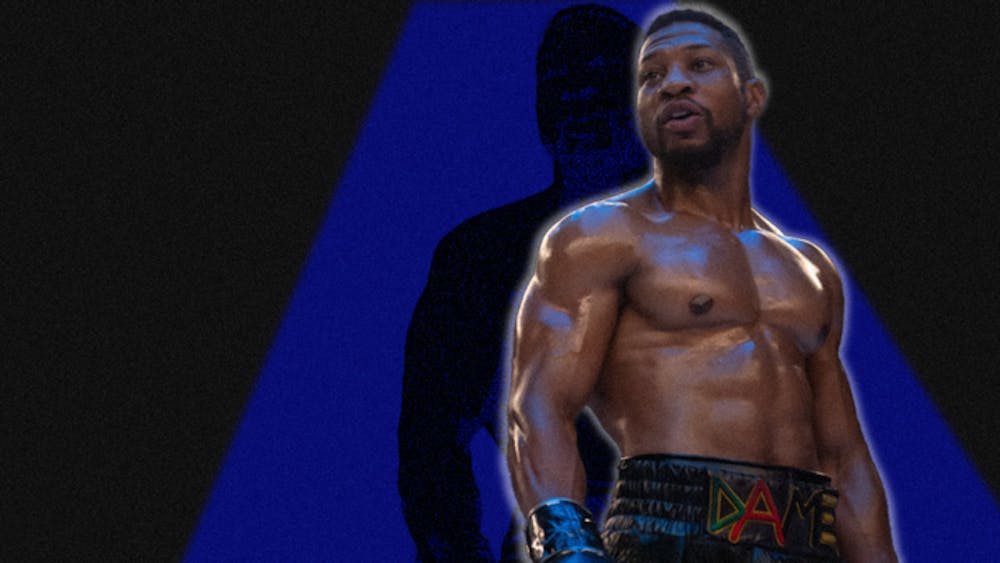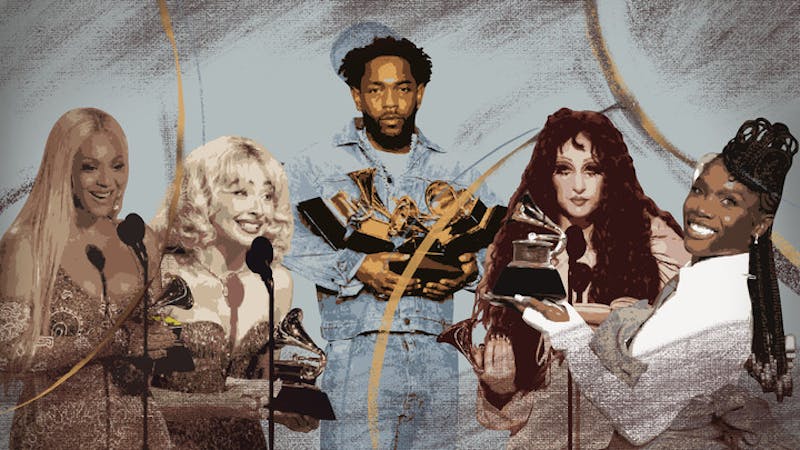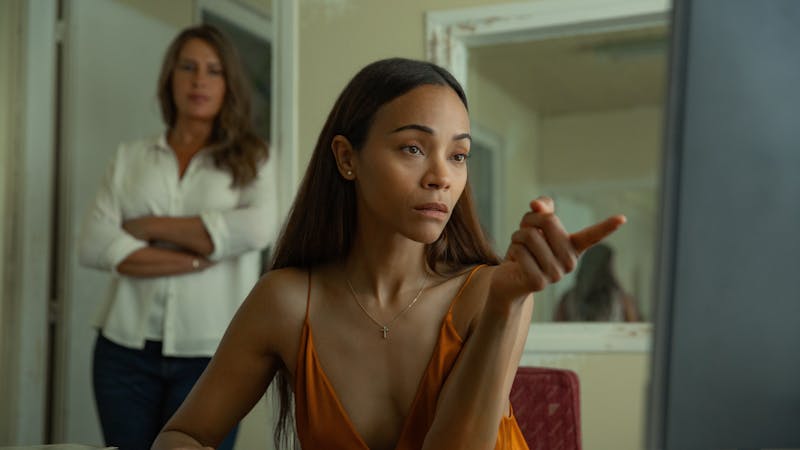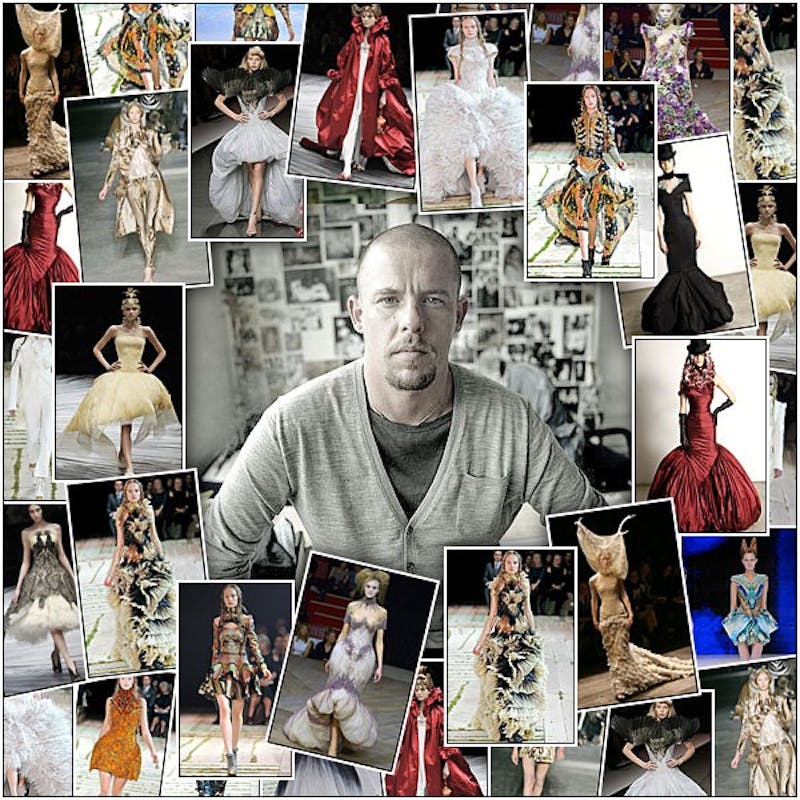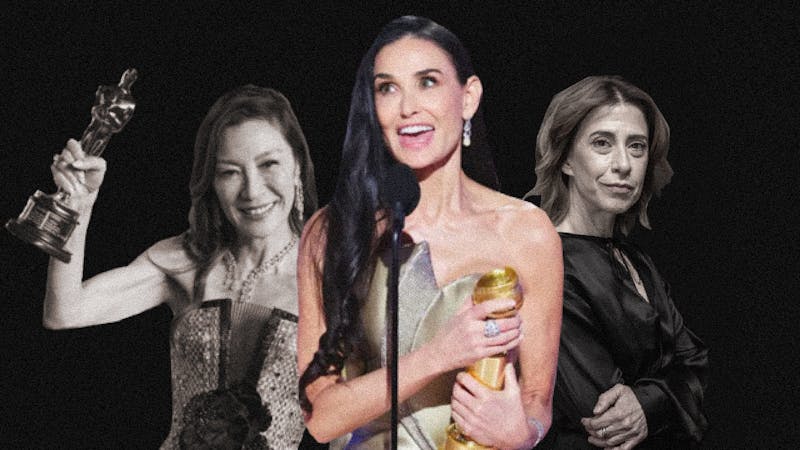What makes a Hollywood comeback?
There’s a familiar and enduring appeal to watching the larger–than–life stars that populate our own cinematic universes return to the public’s good graces. This is usually spoon–fed to us as an inspirational tale, like Demi Moore shrugging off the “popcorn actress” label to receive a Golden Globe for her work in The Substance. Other comebacks can be a bit of a misfire—Taylor Swift’s “bad girl” rebrand after a public feud with the artist formerly known as Kanye West never had much staying power.
Then there are the comebacks that leave a bad taste in our mouths, those that use the "rebrand" as a means to scrub clean a reputation damaged by serious allegations. Consider the Johnny Depp v. Amber Heard trial, or the many apologies made by Mel Gibson for a seemingly never ending deluge of antisemitic remarks.
It's also been the general response to attempts from actor Jonathan Majors, ousted from the film industry at large following serious allegations of domestic abuse and a public court case, to resurrect his career.
Jonathan Majors, though absent from our screens since about 2023, had spent years preparing to be the next big thing. He came up in pedigree indies like The Last Black Man in San Francisco, gained auteur credibility by starring in Spike Lee’s Da 5 Bloods with veteran actor Delroy Lindo, and received an Emmy nomination for the HBO horror show Lovecraft Country. He also gained public visibility with roles as charismatic villains in blockbusters such as Creed III and the Marvel Cinematic Universe. Then came the 2023 film Magazine Dreams.
When Magazine Dreams came to the Sundance Film Festival in 2023, critics lauded Majors’ performance. The film, which riffs on Taxi Driver and stars Majors as a troubled bodybuilder who struggles with mental illness, sparked a critical consensus that Majors was going to be one of the defining actors of his generation. Vanity Fair waxed poetic that he was “an actor to be reckoned with, expansive and chameleonic,” while Variety settled for “what a performance!” Magazine Dreams was supposed to elevate Majors to new heights and fame and acclaim—and perhaps even net him a coveted Oscar nomination.
But that nomination never came. Just months after the film’s sparkling premiere, Majors was arrested in New York City and charged with assault and harassment of his then girlfriend Grace Jabbari. When Majors was arrested, Jabbari—who was not a public figure—was found to have a cut behind her left ear and a fractured finger. Majors was dropped by his management and PR firms, and Marvel quietly cut him and his character—Kang the Conqueror—from their upcoming slate of films. In court, Majors was found guilty of third–degree assault and second–degree harassment. He completed 52 weeks of court–ordered domestic violence training. Searchlight Pictures kicked Magazine Dreams to the curb—it was only released by Briarcliff, a distributor specialized in distressed assets, in mid–March of 2025, to muted fanfare.
Majors seized on this new release to mount a wide–ranging comeback tour. Throughout March and early April, Majors gave long and intimate interviews to trade magazines like Variety and news sites like CBS about his troubled childhood, difficult relationship to fame, and his search for “redemption.” Redemption, truth, rebirth—these are the mantras that Majors can’t stop himself from reaching for. In a splashy (but sober and respectful) Hollywood Reporter cover story, Majors muses on accountability, declaring his new objective to be to “have a struggle, learn, metabolize, grow,” and rhapsodizes on his love for his now wife, Black actress Megan Good.
Megan Good is, in many ways, the real centerpiece of this redemption tour. Majors began dating Good very soon after his arrest and chose to enter a very public relationship with her. Paparazzi followed them back and forth from the courtroom, solemn in all–black, smitten, and domestic as she held his hand. As Majors’ reputation sunk, Good’s own public goodwill became his life raft. A beloved former child actress, Megan Good’s presence lent his story a certain credibility—particularly among Black audiences.
Grace Jabbari, who accused Majors of assault, was white. Majors’ legal team accused Jabbari of telling “white lies” and said in trial that “his fear of what happens when a Black man in America calls 911 came true.” As Majors and Good went back and forth between the courtroom and the cameras, making a very public display of Black love, they subtly further reinforced the idea that Jabbari was lying and weaponizing her race to smear an innocent Black man. Implicitly and explicitly, Majors and his team asked the public to rally behind one of the few young Black male stars in Hollywood.
Majors has even referred to Megan Good as his “Coretta,” the wife to Martin Luther King Jr. Obvious here is the implication that Majors himself is Dr. King. During his trial, audio clips from a conversation between Jabbari and Majors surfaced where he reprimands her for not serving as the “Coretta” or the “Michelle” to his Obama during their relationship. The narcissism required to believe that one is analogous to MLK Jr. aside, Majors’ displays of Black love and leadership seem far less genuine when he’s on record telling his white girlfriend that she too should emulate Coretta Scott King to be deserving of a relationship with him.
Still, this strategy of leaning on Black actors and audiences has borne fruit. Black stars have risen to his defense—Michael B. Jordan, for example, has defended the “resilience” of Majors and offered to work with him again. In addition, Majors has relied on the reputations of well–loved Black female stars like Good to burnish his own. Keke Palmer recorded an episode of her popular podcast with Majors, with a description of the episode reading, “we’re living in a time where we want real accountability—especially for things men have gotten away with for far too long … at the same time … we’re still figuring out what true accountability even looks like.” Palmer later pulled this episode after fan backlash, but spent weeks promoting it before it got the axe. Whoopi Goldberg complained that Majors “had gone to court. What else was he supposed to do?”
The instinct of a few of the most prominent Black stars in Hollywood to stand behind one of their own is not illogical or even necessarily wrong. Majors is clearly talented—maybe it would be a waste to never see him work again. Moreover, Black men have been targets of false accusations of assault many times in recent American life. Historically, Black actors have also faced harder paths to stardom than their white counterparts, and certainly endured more difficult paths towards redemption.
Yet despite these obstacles, Majors seemed to have had a relatively smooth go at his redemption tour. Managing to score cover stories in major trade magazines like The Hollywood Reporter and Variety, re–secure distribution for Magazine Dreams, and even win public praise from A–listers like Matthew McConaughey suggest that it isn’t industry backing that Majors truly lacks. These are not small accomplishments for an actor who faced public disgrace—they hint at true and unwavering institutional support. Majors is even beginning to recapture lost opportunities, recently joining the cast of the upcoming action film True Threat. At this point, the only people not sold on the rebirth of Jonathan Majors seem to be the audiences themselves.
The writer of the generally sympathetic and warm The Hollywood Reporter story interviewed Majors’ past girlfriends, who relay skepticism of this new redemption tour and even alleged other cases of emotional and physical abuse. But these testimonies have generally been drowned out and minimized by the glowing support of his starry network. “You don’t get to say sorry these days,” Goldberg lamented about Majors’ situation. But where has Majors apologized?
Despite furtively denying the claims made by Jabbari, new audio leaked of Majors’ admitting to assaulting her back in 2022 just days after The Hollywood Reporter story (which now includes one parenthetical sentence referencing the leak). Majors can be heard saying, “I’m ashamed I’ve ever … I’ve never been aggressive with a woman before … I’ve never aggressed a woman. I aggressed you.”
Majors and Good married two days after that audio clip leaked. While he's continued to lean on prestige, name dropping his close friendships with Will Smith and Tyler Perry as “keeping him afloat,” he now also bills himself as a family man. He seems to have found God too, speaking about praying “with countless Black women on the street corner in New York City.” It’s perhaps unfair to speculate on his personal relationships with Good or other Black women in his life, but in the public square, Majors uses his credit with the Black community—and Black women—as a tool. What is a Black woman—or any woman—to Jonathan Majors except a good prop, or a good scene partner? Moreover, as long as Majors continues to publicly insist that he has never hit a woman, how are audiences supposed to believe in the sincerity of any comeback? On questions like these, the jury is still out.
